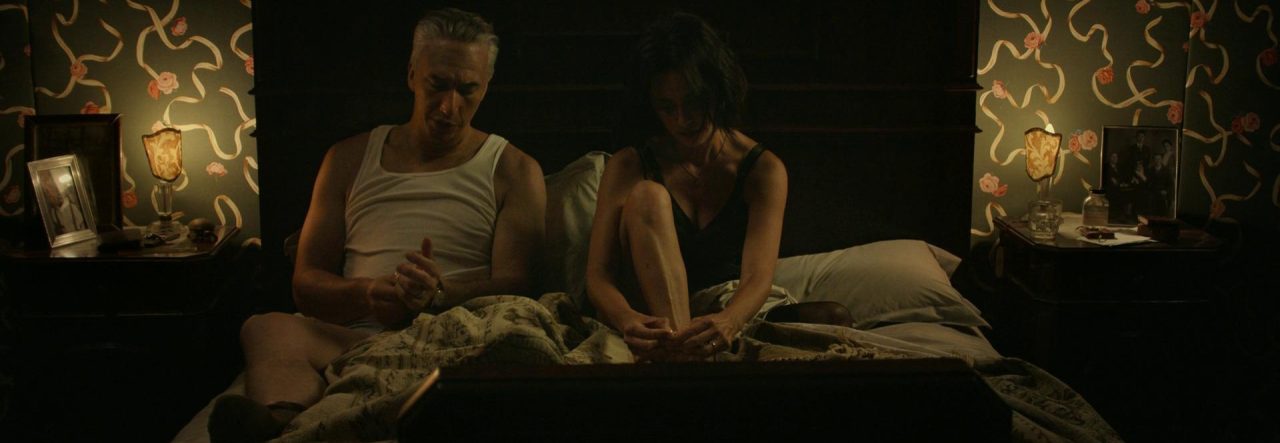 Its rare that I watch a film these days and just think, wow, I’ve just seen one of my favourite films, ever. That’s what happened watching Alan Pakula’s 1971 thriller Klute. It was just… brilliant. Almost faultless. The script, the acting, the cinematography, the understated direction, the subtle, unnerving music score… wonderful stuff. To think I stumbled into buying this Criterion edition on Blu-ray pretty much by accident.
Its rare that I watch a film these days and just think, wow, I’ve just seen one of my favourite films, ever. That’s what happened watching Alan Pakula’s 1971 thriller Klute. It was just… brilliant. Almost faultless. The script, the acting, the cinematography, the understated direction, the subtle, unnerving music score… wonderful stuff. To think I stumbled into buying this Criterion edition on Blu-ray pretty much by accident.
Its a comforting thought that there are lots of excellent films out there that I just simply haven’t stumbled across yet. Its then a scary realisation that, following that flow of logic, that there are lots of excellent films that I never will. Well, at least Klute didn’t escape me.
Its a curiosity that the subject of the films title, detective John Klute (Donald Sutherland) isn’t really the focus of the film: he’s secondary throughout to the drama and ensuing character study surrounding call-girl/aspiring actress Bree Daniels (Jane Fonda), a breathtaking turn that rightfully won Fonda an Academy Award. I’m not a fan of Fonda -it was really Sutherland’s involvement that turned me onto this film- but she blew me away with this one, causing me to reconsider my appraisal of her as an actress. The film follows a missing-persons investigation that brings John Klute to New York, his only lead to finding missing businessman and friend Tom Gruneman bringing him to the door of Bree Daniels, and a subsequent tour of the low-rent, low-life worst of 1970s New York.
 The setting is everything: there is a gritty, nightmare reality to New York depicted in this film, far removed from the post-bankruptcy Disneyland that the city has since become. These are streets not far from those of Taxi Driver. There is something so simple and direct about it: Pakula isn’t trying to shock, he’s simply showing us how things are (were). Likewise none of the cast really draws any attention to themselves- this is the era of 1970s American Cinema and an understated realism to performances and appearances: these are not remarkable-looking, beautiful people populating this film, just ordinary-looking Joes, and indeed the scariest thing about the killer that stalks Bree is that he appears to be an Everyman, nothing remarkable about him at all. I think modern Hollywood would be hard-pressed to cast this film now; the whole point of actors now is to draw attention to themselves, engender individuality to justify their multi-million dollar pay-cheques. Sutherland seems to blend with the wallpaper and brickwork in some scenes, as if he’s trying top convince us he isn’t even there. Fonda, of course, only benefits from the vacumn he leaves in his wake: the film is really her story, and everyone else -Klute, her clients, her psychiatrist, the killer- orbit around her like satellites caught in her gravity.
The setting is everything: there is a gritty, nightmare reality to New York depicted in this film, far removed from the post-bankruptcy Disneyland that the city has since become. These are streets not far from those of Taxi Driver. There is something so simple and direct about it: Pakula isn’t trying to shock, he’s simply showing us how things are (were). Likewise none of the cast really draws any attention to themselves- this is the era of 1970s American Cinema and an understated realism to performances and appearances: these are not remarkable-looking, beautiful people populating this film, just ordinary-looking Joes, and indeed the scariest thing about the killer that stalks Bree is that he appears to be an Everyman, nothing remarkable about him at all. I think modern Hollywood would be hard-pressed to cast this film now; the whole point of actors now is to draw attention to themselves, engender individuality to justify their multi-million dollar pay-cheques. Sutherland seems to blend with the wallpaper and brickwork in some scenes, as if he’s trying top convince us he isn’t even there. Fonda, of course, only benefits from the vacumn he leaves in his wake: the film is really her story, and everyone else -Klute, her clients, her psychiatrist, the killer- orbit around her like satellites caught in her gravity.
The cinematography by Gordon Willis (described as the “prince of darkness” because of his skills with light and dark in his films) is draw-droppingly beautiful. Several times I was reminded of Blade Runner, and its clear to me that Klute was likely an influence on how that film looked (compare much of Klute to, say, the lighting of Deckard’s apartment), but while Blade Runner‘s cinematography always drew attention to itself, becoming a character all its own in that film, there is a subtlety to the photography here. And yet the atmosphere, the claustrophobia that fills Klute is all from that cinematography: Bree has an heart of darkness that we can see in every scene, and the delicious (oh so 1970s!) ending has an ambiguity enough to suggest she never escapes from it.
Fantastic film. I absolutely loved it. If by some slim chance you were like me and have never seen it, rectify that as soon as you can.

Pingback: The 2020 List: July – the ghost of 82
Pingback: Point Blank’s unreliable narrator – the ghost of 82
Pingback: Serpico – the ghost of 82